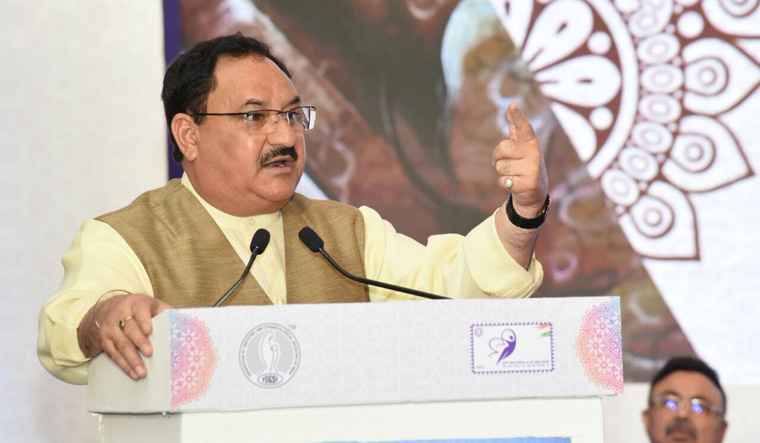A little over three months after the scheme was announced by Union Finance Minister Arun Jaitley in his budget speech, the Centre is treading cautiously on the launch date of the National Health Protection Scheme, the world's largest health insurance scheme that is touted to benefit 50 crore people.
"It's a new scheme, and there are going to be bottlenecks. We want to ensure that it works smoothly on ground," Union Health Minister J.P. Nadda told reporters at a press briefing on Monday.
In July, the information technology systems, which will be used to implement the scheme, would be tested to ensure that there are no lapses such as fraud beneficiaries. "Once we are confident of the systems working out, we will roll out the scheme," he said, while responding to a question about the date of the launch.
On June 14, the Centre would sign MoUs with "maximum" number of states at a meeting that is slated to be held at Vigyan Bhawan in New Delhi, said Nadda.
Such MoUs have already been signed with 12 states, he added. "We have given total flexibility to the states to choose their health systems and decide according to what suits them best," he said.
Though most states are on board for taking up the Centre's health insurance scheme, the states of West Bengal, Punjab, Karnataka, Odisha, and Delhi were still not in agreement, said a ministry official who did not wish to be named.
The health minister also said that, by 2022, all sub centres (1.5 lakh of them) would be converted to health and wellness centres, offering a larger bouquet of health services—an upgrade from the existing sub-centres that offer pregnancy care and immunisation services. "This year, we are going to upgrade 14,000 centres, " he said.
At the presser, Nadda also spoke about his ministry's "achievements" in the last four years, some of which include a drop in maternal mortality leading to 12,000 fewer maternal deaths (related to pregnancy) in 2015, as compared to those recorded in 2012; an increase in number of vaccines in the universal immunisation programme (from 7-12), and an increase in full immunisation coverage (from one per cent per year, to 7 per cent per year).
The minister also said that the Cabinet had approved the plan for eight new AIIMS at Manglagiri in Andhra Pradesh, Nagpur, Kalyani, Gorakhpur, Bathinda, Guwahati, and Bilaspur. This is being done to decrease the load on the AIIMS in New Delhi, where waiting times for procedures such as surgery for the heart can run into several years. Nadda also said that students passing out of AIIMS, Delhi, would now be offered placement for positions in other AIIMS (outside of Delhi), and appointments for faculty at these facilities would now be expedited to address shortages.


